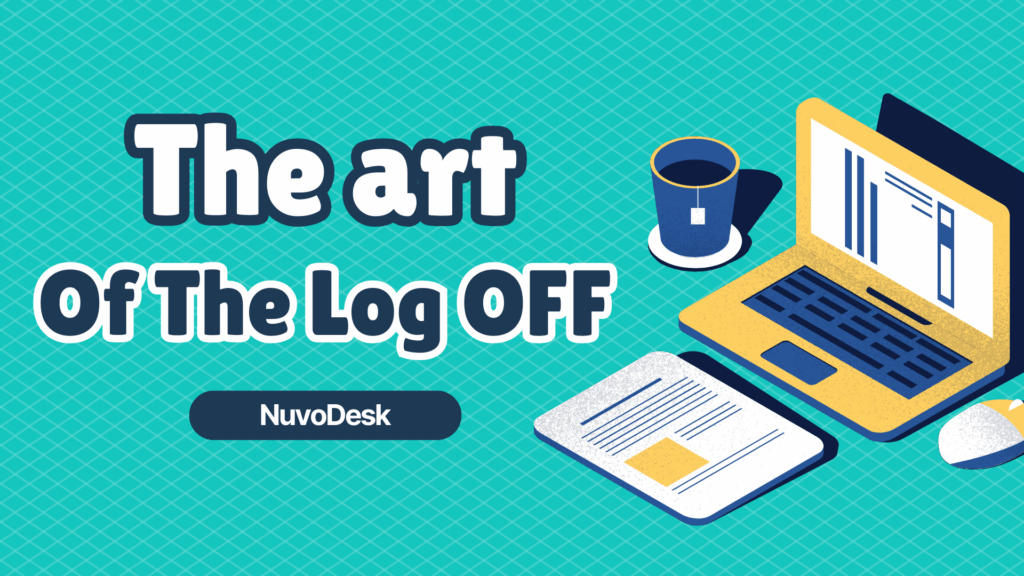In the dynamic world of freelancing and entrepreneurship, the lines between work and personal life often blur. With smartphones tethering us to our inboxes, Slack channels buzzing, and social media demanding constant engagement, the “always-on” work culture isn’t just a challenge – it’s often the default. While the flexibility and autonomy of being your own boss are invaluable, they can also lead to an insidious creep of work into every corner of your life, jeopardizing mental health, relationships, and ultimately, your long-term productivity.
If you’re finding yourself checking emails at midnight, responding to clients on vacation, or feeling perpetually “on,” it’s time to take control. This National Preparedness Month, while we think about external emergencies, let’s also prepare for the internal ones: burnout, stress, and the erosion of personal time. Setting clear, actionable boundaries isn’t just about saying “no”; it’s about proactively protecting your well-being, fostering sustainable work habits, and ultimately, building a more resilient and successful business.
The “Always-On” Trap: Why It’s So Hard to Disconnect
The hyper-connected world presents a unique set of challenges for independent professionals:
- Fear of Missing Out (FOMO): The worry that if you don’t respond immediately, you might lose a client, a lead, or an opportunity.
- Client Expectations: Some clients may expect instant replies, setting an unsustainable precedent.
- Ambition & Drive: As an entrepreneur, you’re driven to succeed, often leading to overwork and a belief that more hours equate to more success.
- Blurred Lines: Without a traditional office clock-out time, the workday can stretch indefinitely, making it hard to mentally “leave” work.
- Technology Addiction: The constant notifications and easy access to work tools can create a compulsive checking habit.
However, research consistently shows that continuous work without adequate rest leads to decreased productivity, creativity, and increased stress and burnout. Protecting your personal time isn’t selfish; it’s a strategic business decision.
Actionable Strategies for Building Stronger Boundaries
Ready to reclaim your time and energy? Here’s how to start setting effective boundaries today:
1. Define Your “Operating Hours” – And Stick To Them
This is the foundational step. Decide when your workday officially begins and ends.
- Communicate Clearly: Inform clients of your working hours (e.g., “My working hours are Monday-Friday, 9 AM – 5 PM PST. I will respond to all inquiries within 24 business hours.”). Include this in your email signature, project proposals, and welcome packets.
- Schedule “Hard Stops”: Treat the end of your workday like an unmissable appointment. Block it out in your calendar.
- Automate Responses: Use “out of office” replies for evenings and weekends, even if you’re not actually out of office. Set one for “After-hours and weekend inquiries will be addressed during business hours.”
2. Create Physical & Digital Disconnects
Make it harder for work to intrude on your personal space and time.
- Dedicated Workspace: If possible, have a designated workspace – even if it’s just a corner of a room. When you leave that space, you’re “leaving work.”
- Device Management:
- Separate Devices: If feasible, use a separate phone or laptop for work.
- “Do Not Disturb” (DND): Utilize DND modes on all your devices. Schedule it to activate automatically during non-work hours. Only allow urgent calls from personal contacts to break through.
- Turn Off Notifications: Disable all non-essential work-related notifications outside of your operating hours. You don’t need to know every email that lands in your inbox the second it arrives.
- Log Out: At the end of your workday, log out of work-related apps, email accounts, and social media platforms on your personal devices.
3. Master the Art of Saying “No” (or “Not Right Now”)
This can be challenging, especially for service-based businesses, but it’s crucial.
- Prioritize Ruthlessly: Not every request is urgent. Evaluate its importance and impact before committing.
- Offer Alternatives: Instead of a flat “no,” suggest an alternative timeframe (“I can’t take on that additional task this week, but I’d be happy to schedule it for next week’s sprint.”).
- Be Direct & Concise: Don’t over-explain or apologize excessively. A simple “That doesn’t align with my current priorities” or “I’m unavailable at that time” is often sufficient.
4. Schedule Unplugged Time & Hobbies
Proactively plan for non-work activities.
- Block Out Personal Time: Schedule workouts, family time, hobbies, or just quiet relaxation in your calendar. Treat these like non-negotiable client meetings.
- Implement a Digital Detox Day/Period: Choose one evening a week or a portion of your weekend to completely disconnect from all work-related digital devices.
- Cultivate Hobbies: Re-engage with activities that bring you joy and help you de-stress. These are vital for mental refreshment and avoiding burnout.
5. Communicate Your Boundaries Proactively
Don’t wait for a boundary to be crossed. Set expectations from the outset.
- Onboarding Process: When taking on new clients, clearly outline your communication protocols, response times, and working hours as part of your onboarding.
- Team Guidelines: If you have a small team, establish shared expectations around communication outside of work hours. Lead by example.
The Long-Term Benefits of Boundary Setting
Implementing these strategies isn’t just about stress reduction; it’s about building a more sustainable and successful business. When you are well-rested, mentally clear, and have time for personal enrichment, you are:
- More Productive: Focused work during defined hours leads to better output than scattered, always-on efforts.
- More Creative: Disconnecting allows your brain to rest and make new connections, fueling innovation.
- Healthier & Happier: Reduced stress, better sleep, and more personal time contribute to overall well-being.
- More Resilient: You’ll be better equipped to handle actual crises without being perpetually on the verge of burnout.
This National Preparedness Month, extend your readiness beyond external events. Prepare yourself, your mind, and your business for sustainable success by embracing the power of strong boundaries. Your future, well-rested self will thank you.
